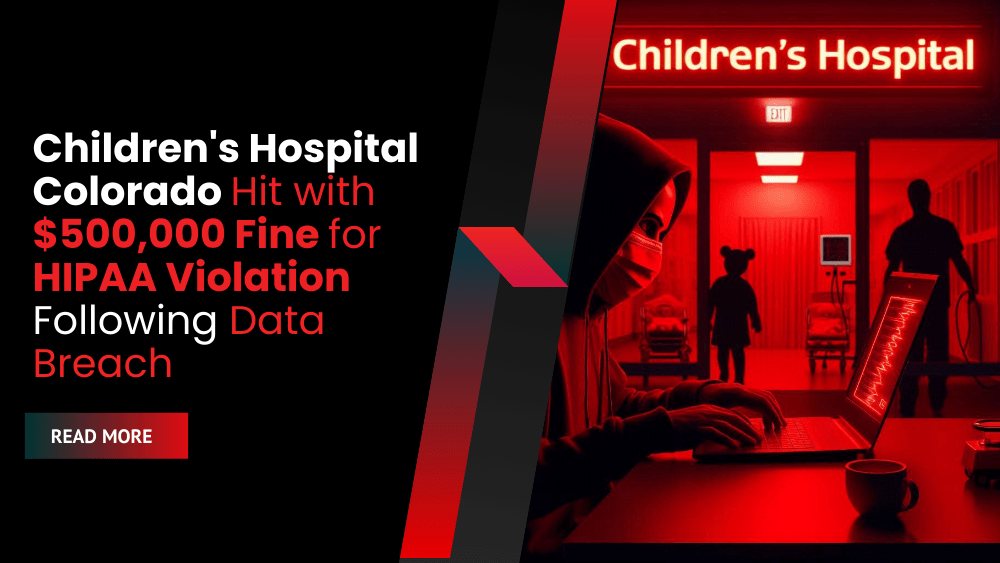Children’s Hospital Colorado Data Breach and HIPAA Violation Fine
Children’s Hospital Colorado is facing a significant financial penalty following a federal investigation into two separate data breaches. The U.S. Department of Health and Human Services (HHS) levied a $500,000 fine against the hospital for violations of the Health Insurance Portability and Accountability Act (HIPAA) Privacy and Security Rules. The hospital, however, maintains its innocence, asserting that no actual violations occurred.
Details of the Data Breaches and HIPAA Violations
The HHS investigation stemmed from two phishing attacks targeting the hospital’s email system. The first incident, in 2017, compromised an email account containing the protected health information (PHI) of 3,370 individuals. The HHS investigation determined that this breach occurred because multi-factor authentication was disabled on the compromised email account, a clear violation of HIPAA security protocols.
The second breach, in 2020, was even more extensive. Three email accounts were compromised, exposing the PHI of 10,840 individuals.
The HHS report stated that this breach occurred, in part, because “workforce members gave permission to unknown third parties to access their email accounts,” highlighting a critical failure in security awareness training and access control measures.
Beyond the immediate breaches, the HHS investigation also uncovered broader systemic issues. The report cited violations of the HIPAA Privacy Rule due to inadequate training for workforce members on HIPAA regulations.
Specifically, the hospital failed to adequately train staff on the nuances of the HIPAA Privacy Rule and its Security Rule, which mandates regular risk assessments to identify and mitigate potential vulnerabilities in electronic health information systems. This failure to conduct a “compliant risk analysis” to determine potential risks and vulnerabilities to electronic health information further contributed to the hefty fine.
Hospital’s Response and the Fine
Children’s Hospital Colorado acknowledged filing a HIPAA breach notice with HHS’s Office for Civil Rights (OCR) in September 2017, demonstrating a degree of cooperation with the investigation. A spokesperson for the hospital emphasized their transparency throughout the process. However, despite this cooperation, the hospital chose not to appeal the $500,000 fine, citing the substantial costs and resources required for such an appeal.
In a statement, the spokesperson reiterated the hospital’s belief that no actual HIPAA violations occurred. They expressed disappointment with the HHS’s final decision, emphasizing their significant efforts to negotiate a reasonable settlement. The spokesperson stressed that there’s no evidence that patients’ health information was actually accessed by unauthorized individuals. To further alleviate patient concerns, the hospital provided a contact email address ([email protected]) for individuals with questions about their protected health information. The lengthy investigation, the spokesperson added, should reassure patients that there’s no ongoing threat.
Impact and Implications of the Hospital Data Breach and HIPAA Violation
This case underscores the critical importance of robust cybersecurity measures and comprehensive HIPAA compliance programs within healthcare organizations. The significant fine levied against Children’s Hospital Colorado serves as a stark reminder of the potential financial and reputational consequences of failing to adequately protect patient data.
The data breach and subsequent HIPAA violations highlight the need for ongoing staff training, regular security audits, and the implementation of strong multi-factor authentication protocols to prevent future incidents. The case also raises questions about the effectiveness of current HIPAA enforcement mechanisms and the challenges faced by healthcare providers in maintaining data security in the face of increasingly sophisticated cyber threats. The incident serves as a cautionary tale for other healthcare organizations, emphasizing the need for proactive measures to prevent similar data breaches and HIPAA violations.









